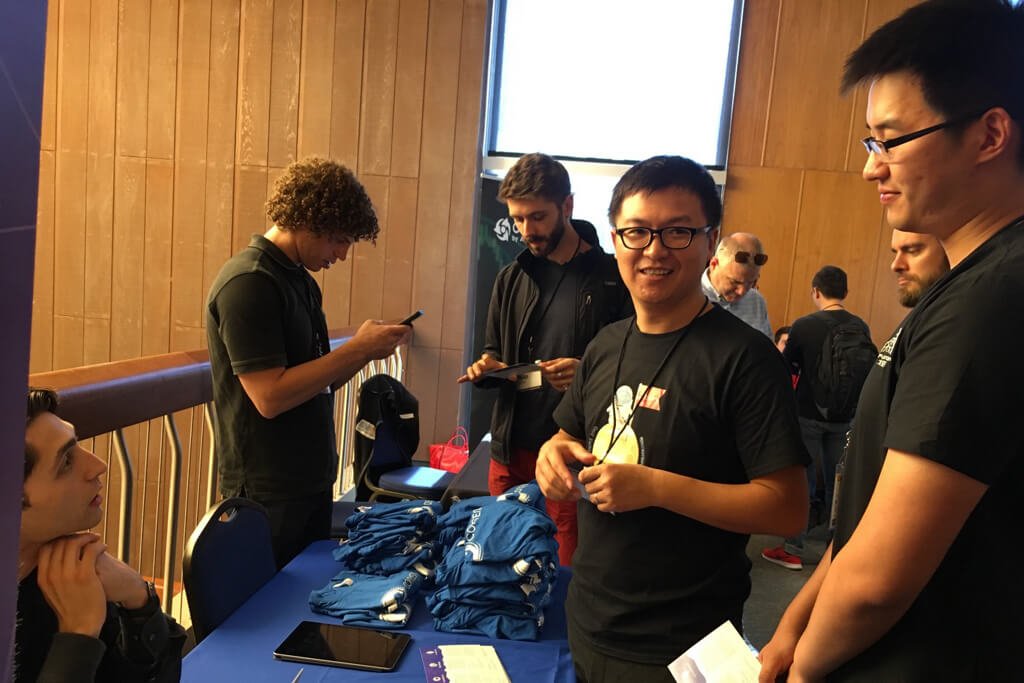
Qtum has signed a memorandum of understanding with 360 Finance, a subsidiary of Chinese internet security industry leader Qihoo 360, under which it will be collaborating with the 360 Blockchain Research Center to work on setting up of blockchain lab.
The deal, which also includes the BTN Foundation, is focused on taking meaningful strides towards the commercialization of blockchain technology and the implementation of solutions to enhance the product line of the Qihoo group.
Qihoo’s products include a majority share in the Opera web browser, 360 Total Security that scans and cleans PC hard disks, 360 Mobile Assistant that lets Android users manager apps from their PC, 360 Safeguard antivirus software and the 360 Secure Browser that integrates Internet Explorer and Chrome layouts in order to select the optimal layout for a specific web page.
Qihoo 360 uses a freemium model, which software keeps computers and mobile devices secure from malware and viruses. The software is used by an estimated 500 million consumers in addition to a large footprint of corporate clients.
When measured by the number of users of its services, the internet company ranks as the third-largest in China.
Qihoo 360 has established a reputation of one of the most innovative in the country closely guarding its commercial secrets. Its match with Qtum is considered to be quite a good fit, as the Singapore-based blockchain company could also be considered as best of breed one.
Qtum’s blockchain architecture can accommodate any number of virtual machines, which makes it incredibly useful for applications in real-world use cases.
In computer science, a virtual machine describes a software program that emulates the presence of a physical computer of a specific hardware configuration. By acting as a middle layer, its software allows a program to run on machine for which it was not initially designed for.
For example, users of Mac computers can use virtual machine-based software that allows a Mac to run Windows software as if it were a windows PC.
The beauty of Qtum’s blockchain implementation is that it allows for a similar approach as outlined above, but in a context where middleware can be built meaning that legacy systems can interface with blockchain technology.
Fundamental to Qtum’s tech is its superior x86 Virtual Machine, which combines the ability to handle greater complexity than, for example, the Ethereum one. Qtum’s “account abstraction layer” allows for multiple virtual machines be deployed for greater flexibility and efficiency.
Qtum’s technology also brings with it an improved development environment that guards against writing inefficient smart contracts through its “dependency indications” code framework that explicitly points a smart contract to the other contracts it depends on to function correctly.
In addition, Qtum’s innovative Decentralized Governance Protocol provides smart contract developers, such as those at 360, with a standard set of functions that can be relied upon to ensure secure and correct code of optimum size, so that costs are controlled and known before runtime (when the code is executed).
Patrick Dai, the founder of the Qtum Foundation, said concerning the deal:
“It’s a win-win-win partnership that can tap the shared strengths to promote the multi-lateral collaboration and the adoption of the blockchain technology in commercial contexts.”
Dai is a fellow of the Singapore University of Social Sciences, and was selected for inclusion in the Forbes 30 under 30 list in July last year. He also holds a doctorate in communications and information systems from the China Academy of Sciences.
In addition to smart contract virtual machines the lab will be focusing on consensus models, blockchain cloud storage and computing and internet security.
That last area will likely include work on the Opera browser, which announced in December 2017 that its software had been upgraded to prevent the installation of malicious code aimed at hijacking computer processing power in order to secretly mine bitcoin.
With the Qtum tie-up, we are likely to see further advances in Opera browser security.
Also, in its intention to rival blockchain project IOTA, earlier this month the Qtum Foundation revealed that it has partnered with Silicon Vallley-based Chronicled, which has developed a blockchain-based smart supply chain platform, and University of California Berkeley, to develop secure privacy-preserving systems for Internet of Things devices’ interaction on blockchain.






